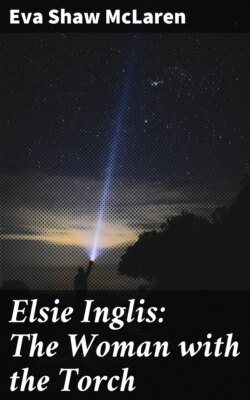Читать книгу Elsie Inglis: The Woman with the Torch - Eva Shaw McLaren - Страница 52
На сайте Литреса книга снята с продажи.
Lady D'Oyly Mrs. Lowis Mrs. Thompson
(Elsie's Grandmother) THE MISSES FENDALL FROM A DRAWING IN THE POSSESSION OF BRIGADIER-GENERAL C. FENDALL, C.B., C.M.G., D.S.O., ETC.
Оглавление"The extraordinary thing in all the letters, whether they were written by an Inglis, a Deas, or a Money, is the pervading note of strong religious faith. They not only refer to religion, but often, in truly Scottish fashion, they enter on long theological dissertations."
David married Martha Money. Close to Martha on the stage stands her brother, William Taylor Money, Elsie's great-uncle. We greet him gladly, for he was a man of character. He was a friend of Wilberforce, and a Member of Parliament when the Anti-Slavery Bill was passed. Afterwards "he owned a merchant vessel, and gained great honour by his capture of several of the Dutch fleet, who mistook him for a British man-of-war, the smart appearance of his vessel with its manned guns deceiving them." There is a picture in Trinity House of his vessel bringing in the Dutch ships. Later, he was Consul-General at Venice and the north of Italy, where he died, in 1834, in his gondola! He had strong religious convictions, and would never infringe the sacredness of the Sabbath-day by any "secular work." In a short biography of him, written in 1835, the weight of his religious beliefs, which made themselves felt both in Parliament and when Consul, is dwelt on at length. A son of David and Martha Inglis, John Forbes David Inglis, was Elsie's father. John went to India in 1840, following his father's footsteps in the service of the East India Company. Thirty-six years of his life were spent there, with only one short furlough home. He rose to distinction in the service, and gained the love and trust of the Indian peoples. After he retired in 1876 one of his Indian friends addressed a letter to him, "John Inglis, England, Tasmania, or wherever else he may be, this shall be delivered to him," and through the ingenuity of the British Post Office it was delivered in Tasmania.
Elsie's mother, Harriet Thompson, went out to India when she was seventeen to her father, George Powney Thompson. She married when she was eighteen.
She met her future husband, John Inglis, at a dance in her father's house. Her children were often told by their father of the white muslin dress, with large purple flowers all over it, worn by her that evening, and how he and several of his friends, young men in the district, drove fifty miles to have the chance of dancing with her!
"She must have had a steady nerve, for her letters are full of various adventures in camp and tiger-haunted jungles, and most of them narrate the presence of one of her infants, who was accompanying the parents on their routine of Indian official life." In 1858, when John Inglis was coming home on his one short furlough, she trekked down from Lahore to Calcutta with the six children in country conveyances. The journey took four months; then came the voyage round the Cape, another four months. Of course she had the help of ayahs and bearers on the journeys, but even with such help it was no easy task.
John Inglis saw his family settled in Southampton, and almost immediately had to return to India, on the outbreak of the Mutiny. His wife stayed at home with the children, until India was again a safe place for English women, when she rejoined her husband in 1863.
They crowd round Elsie Inglis, these men and women in their quaint and attractive costumes of long ago; we feel their influence on her; we see their spirit mingling with hers. As we run our eye over the crowded stage, we see the dim outline of the rock from which she was hewn, we feel the spirit which was hers, and we hail it again as it drives her forth to play her part in the great drama of the last three years of her life.
The members of every family, every group of blood relations, are held together by the unseen spirit of their generations. It matters little whether they can trace their descent or not; the peculiar spirit of that race which is theirs fashions them for particular purposes and work. And what are they all but the varied expressions of the One Divine Mind, of the Endless Life of God?
